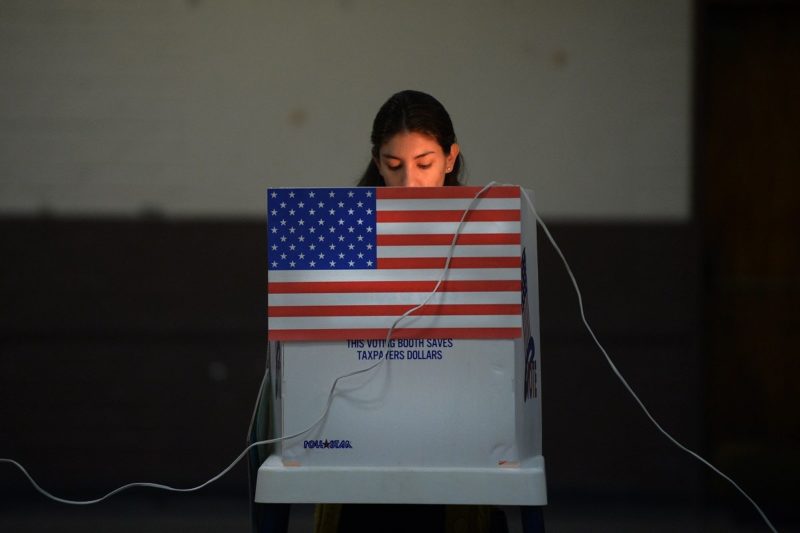Latinx Must Use Votes to Fight Hyde Amendment
More than 27 million Latinx are now eligible to vote, and that number can help determine who takes office and what abortion policies they enact.

The first woman known to die of an unsafe illegal abortion after the Hyde Amendment was a Latina. A struggling 27-year-old college student with a young daughter, Rosie Jimenez died from septic shock in October 1977—with a scholarship check earmarked for school in her purse. Jimenez had been refused coverage because, just months before, Congress had enacted the Hyde Amendment banning use of federal Medicaid funds for abortion except in cases of rape, incest, or life endangerment.
As we enter this Latina Week of Action for Reproductive Justice (today through August 7), the Hyde Amendment continues to deny pregnant people the chance to make the best decision for themselves and their families. And because our communities are hard-hit by abortion restrictions, Latinx must play a role in our electoral process to repeal Hyde and replace other anti-abortion measures with policies that truly support all families.
A 2011 study found that more than 70 percent of Latino registered voters believe that we should not judge someone who feels they’re not ready to be a parent. Unfortunately, this sentiment is not echoed by many legislators in Congress and throughout the country, who too often design policies precisely to put abortion care out of reach.
While the recent Whole Woman’s Health v. Hellerstedt Supreme Court struck down medically unnecessary restrictions in Texas, abortion access remains a challenge for many Latinx across the country. The Hyde Amendment has a disproportionate impact on low-income people of color who already face numerous health-care disparities and often do not have the money to compensate for insurance gaps.
Withholding Medicaid coverage for abortion has an especially devastating effect in our communities, where enrollment is high; in 2012, 29 percent of Latinx adults and children nationwide received benefits from the program, and in some states such as Texas, more than half of Medicaid participants were Latinx.
Whether it’s public or private, health insurance must cover the services we need. When it doesn’t, the scramble to pay for an abortion has the potential to push families further into poverty. Already, too many of us are just scraping by while living with the stresses of a broken immigration system that divides families, structural racism, and lack of educational and employment opportunities.
Our communities need laws to ensure that health plans provide abortion coverage—not the Hyde Amendment nor legislation that claims to protect women while closing clinics or shaming those who provide and seek abortions.
Abortion is health care. And the ability to obtain health care should not be predicated on what type of insurance benefits you have, how much money you make, or whether you live in a state that allows public funds to pay for abortions.
It is time that we push back. Together, we can harness our power to advance positive policies that will make a difference. Latinx comprise a critical voting bloc that can significantly influence electoral outcomes; according to the Pew Research Center, an unprecedented number—27.3 million—of Latinx will be eligible to vote in the upcoming election.
But this only matters if we show up at the ballot boxes. We need to hold our elected officials accountable when they don’t consider the needs of our families. By lifting our collective voices and our votes, we can sway who holds office and makes policies.
This election, the health, rights, and dignity of our families are at stake. We cannot afford to sit out voting. It is an opportunity to make sure that those who are charged with representing us stand with our families. We owe it to Rosie Jimenez and the daughter she left behind. We owe it to ourselves.
